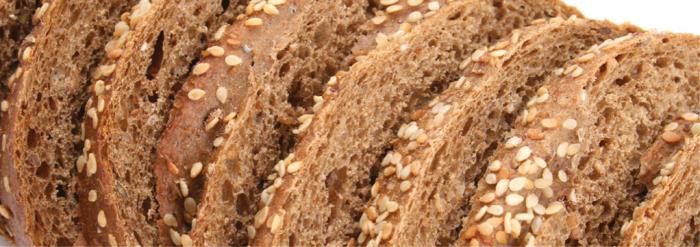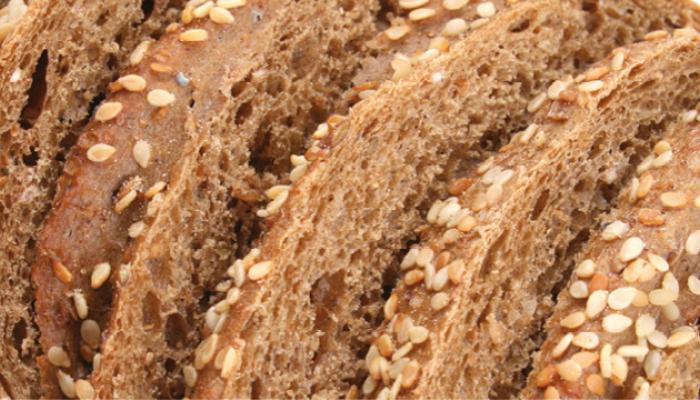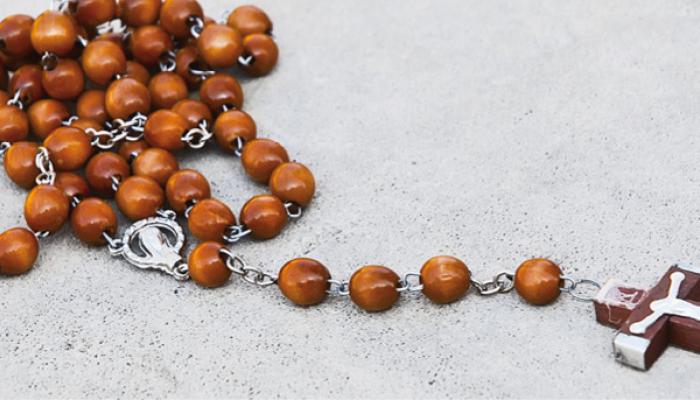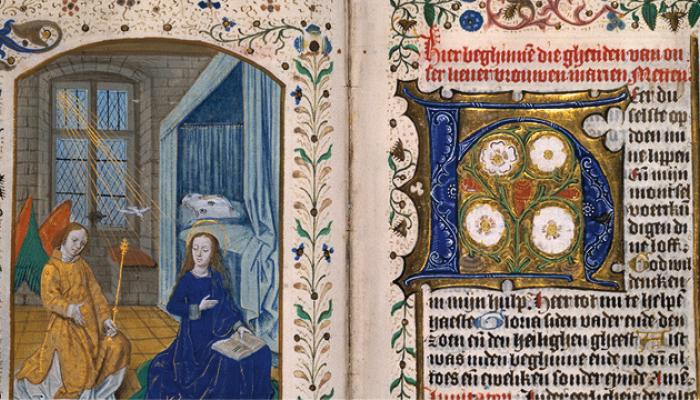
3.11 What kind of prayer is the Our Father?
By calling God “Our Father” (Mt. 6:9-13) Mt. 6:9-13: Pray then like this: Our Father who art in heaven, hallowed be thy name. Thy kingdom come, Thy will be done, on earth as it is in heaven. Give us this day our daily bread; and forgive us our debts, as we also have forgiven our debtors; and lead us not into temptation, but deliver us from evil., you demonstrate that you believe God created us and is therefore our Father. We pray for the coming of his kingdom, and can already recognise signs of the kingdom of God in the good things that we experience around us.
By saying “Thy will be done”, you ask for your will to be conformed to the Will of God. Ultimately, it is only by doing the Will of God that you can become truly happy. In the #TwGOD app, you will find the Our Father in many languages.
What is the place of the Our Father in the Scriptures?
The Our Father is the “summary of the whole Gospel” (Tertullian), “the perfect prayer” (Saint Thomas Aquinas). Found in the middle of the Sermon on the Mount (Matthew 5-7), it presents in the form of prayer the essential content of the Gospel. [CCCC 579]
Why do we say “our” Father?
“Our” expresses a totally new relationship with God. When we pray to the Father, we adore and glorify him with the Son and the Holy Spirit. In Christ we are “his” people and he is “our” God now and for eternity. In fact, we also say “our” Father because the Church of Christ is the communion of a multitude of brothers and sisters who have but “one heart and mind” (Acts 4:32). [CCCC 584]
What is the structure of the Lord’s Prayer?
It contains seven petitions made to God the Father. The first three, more God-centered, draw us toward him for his glory; it is characteristic of love to think first of the beloved. These petitions suggest in particular what we ought to ask of him: the sanctification of his Name, the coming of his Kingdom, and the fulfillment of his will. The last four petitions present to the Father of mercies our wretchedness and our expectations. They ask him to feed us, to forgive us, to sustain us in temptations, and to free us from the Evil One. [CCCC 587]
What does “Lead us not into temptation” mean?
We ask God our Father not to leave us alone and in the power of temptation. We ask the Holy Spirit to help us know how to discern, on the one hand, between a trial that makes us grow in goodness and a temptation that leads to sin and death and, on the other hand, between being tempted and consenting to temptation. This petition unites us to Jesus who overcame temptation by his prayer. It requests the grace of vigilance and of final perseverance. [CCCC 596]
What are the words of the Our Father?
Our Father, who art in heaven,
hallowed be thy name,
thy kingdom come,
thy will be done
on earth as it is in heaven.
Give us this day our daily bread,
and forgive us our trespasses,
as we forgive those who trespass against us;
and lead us not into temptation,
but deliver us from evil.
For thine is the kingdom and the power and the glory
forever. Amen.
In Latin:
Pater noster, qui es in caelis;
sanctificetur nomen tuum; adveniat regnum tuum,
fiat voluntas tua, sicut in caelo et in terra.
Panem nostrum quotidianum da nobis hodie;
et dimitte nobis debita nostra,
sicut et nos dimittimus debitoribus nostris;
et ne nos inducas in tentationem;
sed libera nos a malo.
Quia tuum est regnum, et potestas, et gloria
in saecula. Amen.
The Our Father is the only prayer that Jesus himself taught his disciples (Mt 6:9–13; Lk 11:2–4). That is why the Our Father is also called “the Lord’s Prayer”. Christians of all Christian denominations pray it daily, both in the liturgy and privately. The conclusion, “For thine is the kingdom … ” is mentioned as early as the “Teaching of the Twelve Apostles” (Didache, ca. A.D. 150), and so it can be added to the Our Father. [Youcat 511]
Where do we get the confidence to call God “Father”?
We can be so bold as to address God as Father because Jesus has called us to a close relationship with himself and made us children of God. In communion with him, “who is in the bosom of the Father” (Jn 1:18), we are privileged to cry, “Abba, Father!” [Youcat 515]
How are we changed by the Our Father?
The Our Father allows us to discover joyfully that we are children of one Father. Our common vocation is to praise our Father and to live together as though “of one heart and soul” (Acts 4:32).
Because God the Father loves each of his children with the same exclusive love, as though we were the only object of his devotion, we too must get along together in a completely new way: peacefully, full of consideration and love, so that each one can be the awe-inspiring miracle that he actually is in God’s sight. [Youcat 517]
Why does man not live on bread alone?
“Man shall not live by bread alone, but by every word that proceeds from the mouth of God” (Mt 4:4, citing Deut 8:3).
This passage of Scripture reminds us that men have a spiritual hunger that cannot be satisfied by material means. One can die for lack of bread, but one can also die because one has received bread alone. In a profound sense we are nourished by the one who has “the words of eternal life” (Jn 6:68) and a food that does not perish (Jn 6:27): the Holy Eucharist. [Youcat 523]
What does it mean to say, “Deliver us from evil”?
“Evil” in the Our Father does not mean a negative spiritual force or energy, but rather Evil in person, whom Sacred Scripture knows by the name of “the tempter”, “the father of lies”, Satan, or the devil.
No one can deny that evil in the world is devastating in its power, that we are surrounded by devilish suggestions, that there are often demonic processes at work in history. Only Sacred Scripture calls things by their name: “For we are not contending against flesh and blood, but against the principalities, against the powers, against the world rulers of this present darkness” (Eph 6:12). The petition from the Our Father “deliver us from evil” brings all the misery of this world before God and begs God Almighty to free us from all evils. [Youcat 526]
Why do we end the Our Father with “Amen”?
Christians and Jews alike from ancient times have concluded all their prayers with “Amen”, thereby saying, “Yes, so be it!”
When a person says “Amen” to his words, “Amen” to his life and his destiny, “Amen” to the joy that awaits him, then heaven and earth come together and we are at the goal: with the love that created us in the beginning. [Youcat 527]
On your lips, or at least in the depths of your hearts, there abides the prayer of the Lord which begins with the words "Our Father". The prayer which reveals the Father and at the same time confirms that people are brothers and sisters of one another -and whose whole essence is contrary to all programmes based on the principle of conflict between human beings in any form. The "Our Father" leads human hearts away from enmity, hatred, violence, terrorism, discrimination-from the situations in which human dignity and human rights are trampled upon. [Pope John Paul II, Dilecti Amici, n. 15]





